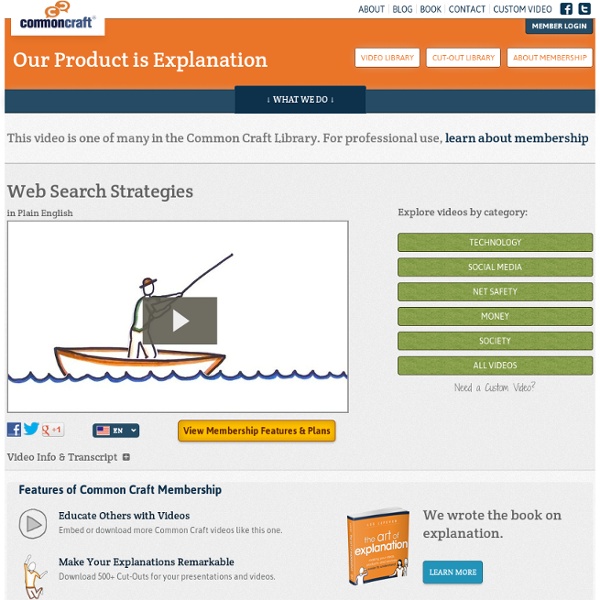Media Literacy
Global rating average: 0.0 out of 50.00.00.00.00.0 These sites focus on media literacy. Learn about types of media literacy and their influences, and how to analyze information conveyed by media.
Assignments - MrRoughton.com
Rubric Cover Sheets How To Instructions Below you will find links to and descriptions of all the assignments we use for Choose Your Own Adventure. Click on the individual assignment links to get the full instructions and printable worksheets. The assignments are divided into three categories based on what skills you will use to complete them. History assignments for just about any topic!
Quintura - visual search engine
Quintura - visual search engine Quintura - visual search engine for hotels ⚫ London hotels ⚫ Manchester hotels
California's Velcro Crop Under Challenge
by Ken Umbach California's important Velcro crop, vital to the clothing, footwear, and sporting goods industries, has been severely stressed by drought, disease, and pests. Background Velcro®, an engineered crop, consists of two distinct strains: hooks and loops. As any user of Velcro knows, a strip of hooks clings to a strip of loops as the springy hook-shaped fibers latch through tiny but firm loops.
EducationalMiniMovies.com
Google Search: 10 Questions & Answers to Help You Search Smarter!
At the Google Teacher Academy Lisa Thumann awed me with her lively presentation on Google Search. I must do an average of 15 searches a day on a wide range of topics. I search for articles, images, power points presentations, key words, etc. but I had no idea what Google search could do for me and my students. What I know now will radically change how I teach my students to research in the future, so I wanted to share some cool tips with other educators. First, let’s get the lingo down (since I didn’t know the terminology before I started digging into the resources Lisa provided). Your search is called a “query” and you type it in the “query box.”
New Hartford, MN
Our direct URL: Come for a visit! Please stay for a lifetime! Welcome to New Hartford, Minnesota. New Hartford is a community of 3027* in south central Minnesota.
Search operators - Search Help
You can use symbols or words in your search to make your search results more precise. Google Search usually ignores punctuation that isn’t part of a search operator. Don’t put spaces between the symbol or word and your search term. A search for site:nytimes.com will work, but site: nytimes.com won’t.
Ethics for Students
Global rating average: 0.0 out of 50.00.00.00.00.0 These sites provide background knowledge for students on the importance of copyright. Ignoring copyright can lead to plagiarism or piracy which are both presented through videos, writing activities, case studies, and simulation. Lesson plans are provided to carry out or adapt activities.
Sweet Search
Save The Pacific Northwest Tree Octopus
Help Save The ENDANGERED From EXTINCTION! The Pacific Northwest Tree Octopus Rare photo of the elusive tree octopus
Wikipedia In The Classroom: Teaching Wikipedia as a Research Tool
For Wikipedia and the classroom … The National Writing Project published an article, “Wikipedia: Friend, Not Foe,” that outlines the benefits of using Wikipedia in school, and offers advice on how to do it. Find the full text of the article here. Wikipedia Selection for schools is a handpicked and vetted assortment of Wikipedia articles that have been deemed useful for students. Articles are organized topically, and separated from the Wikipedia main page to prevent students from accessing irrelevant or inaccurate information. PBS Teachers has a blog, Learning.now, with an article that attempts to cull the opinions of educators on Wikipedia’s role in the classroom.
McWhortle Enterprises, Inc.



